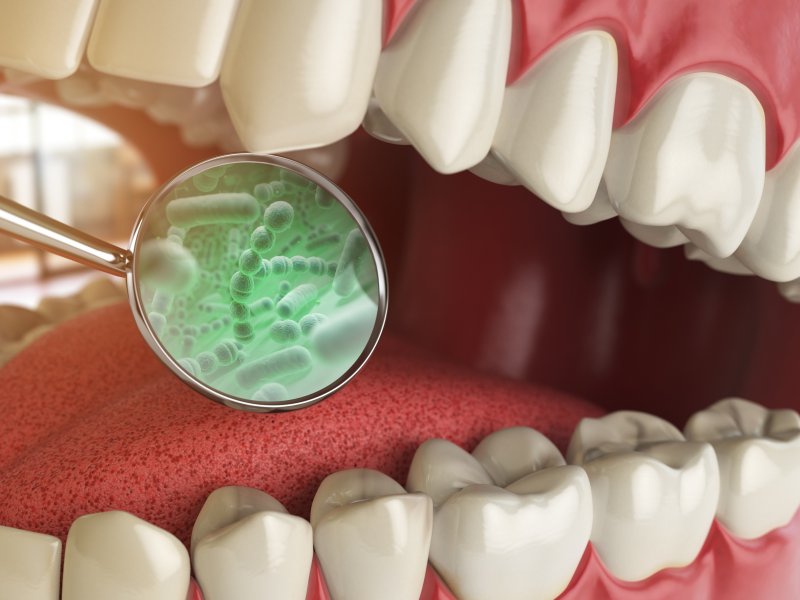
Have you ever thought about all of the bacteria that is around you? Since they are too small to see, it is easy to forget that they’re there. Many of us try not to think about how many microorganisms are around us at all times. The truth is that they are everywhere and even in our mouths. You can’t feel them or taste them, but there are entire colonies existing beneath your tongue. Continue reading to learn more about oral bacteria and what they do.
How Many Bacteria Are in Your Mouth?
It is difficult to say exactly, but there have been over 700 different strains of bacteria detected in the human mouth. However, most people only have about 34 to 72 different varieties. However, it is estimated that your mouth contains approximately 20 billion oral microbes. Some species of bacteria can double their numbers every 20 minutes in ideal conditions. Most bacteria don’t pose any threat to your health. Some are even beneficial, like probiotics. These are the bacteria that help you to digest your food. There are even certain types of bacteria that are there to protect your teeth and gums from harm.
What Types of Bacteria Are Harmful?
There are two types of bacteria in the mouth that are particularly harmful. The most common is called Streptococcus mutans. It is the bacteria that feeds off of the sugars and starches that you eat. This wouldn’t be a problem if they didn’t produce a weak acid as a by-product of their digestion process. This is what weakens your teeth’s protective enamel and ultimately leads to tooth decay.
The other harmful bacteria that can be found in the mouth are called Porphyromonas gingivalis. If you have excellent oral health, chances are that you will not find this bacteria. However, if you do have it, this is usually a sign that you are suffering from periodontitis. That is a later and more serious stage of gum disease. If left untreated, the infection could cause you to experience gum recession, loose teeth, and tooth loss.
How Do You Manage Oral Bacteria?
It is normal to have bacteria in your mouth, but having large quantities of harmful bacteria can lead to issues. By brushing twice and flossing once each day, you can help to clean away some of these bacteria. Other great steps to take include seeing your dentist for regular cleanings and checkups, using a mouthwash, and limiting the number of sugary and starchy foods that you are consuming on a daily basis.
Bacteria play such a huge role in your oral health, but balance is key. With proper oral hygiene practices, you can maintain a healthy smile!
About the Author
Dr. Alan Rauchberg is an experienced dentist who has been working in the dental field for more than 30 years. He earned his DMD from Temple University in Philadelphia and has attended both the Pankey Institute and the Dawson Center. He is affiliated with numerous professional organizations including the American Dental Association and the Academy of General Dentistry. For more information on oral health or to schedule an appointment, visit his website or call (973) 718-9887.
